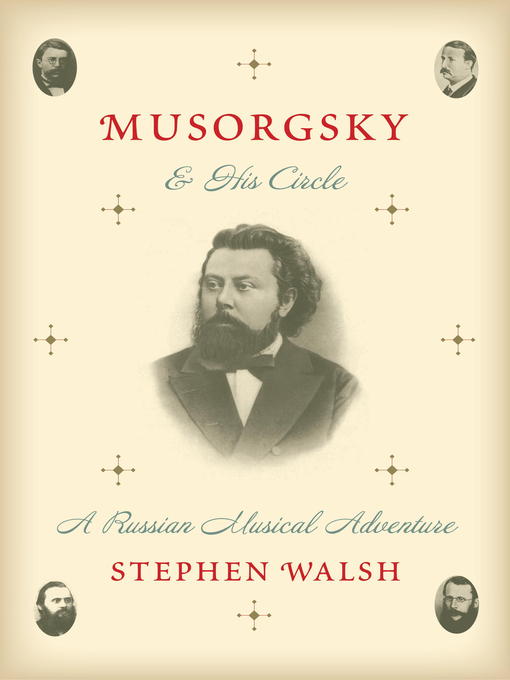
Musorgsky and His Circle
A Russian Musical Adventure
- اطلاعات
- نقد و بررسی
- دیدگاه کاربران
نقد و بررسی

September 23, 2013
Less than 200 years ago, there was no definitively Russian style of musical composition; by the 1860s, a handful of daring, untrained composers known as the Moguchaya Kuchka (“Mighty Little Heap”), including the brooding genius Modest Musorgsky, had collaboratively invented the New Russian school of classical music. Though their technical proficiency was constantly called into question, Musorgsky and his compatriots (among them Nikolay Rimsky-Korsakov) determinedly created music untouched by outside (i.e., Western) influences, choosing to remain independent from conventional wisdom. Walsh, who in Stravinsky wrote about another great Russian composer, meticulously details the absorbing lives of these idiosyncratic Russians—their hypocrisies, internal and external rivalries—all with a careful eye trained on the qualities that made the Kuchka’s music so revolutionary. While Walsh, a former Cardiff music professor, writes with a technical proficiency, his goal—to produce a history of the New Russians that is “both scholarly and readable”—falls shy of the mark. Sadly, his tone is dryly academic, and the narrative confusingly jumps back and forth in time. That said, toward the last third of the book, Walsh finally picks up the pace of the narrative.

Starred review from December 1, 2013
Few influential artistic friendships have had more participants, lasted longer, or been more consequential than that of five Russians who stormed the heights of Western music in the third quarter of the nineteenth century. Though Mily Balakirev, Aleksandr Borodin, C'sar Cui, Modest Mussorgsky, and Nikolay Rimsky-Korsakov did have predecessorsprincipally Mikhail Glinkain building a truly Russian art music, they put it on its feet despite lack of musical education beyond piano tutoring anywhere in Russia (only Rimsky-Korsakov had academic training), of career paths for musicians in Russia, and of encouragement by Russian elites. As the title of Walsh's brilliant volume signals, the greatest of these composers is now considered to be Mussorgsky, whose work was so structurally unusual for its time that most of it wasn't performed as he wrote it until the later twentieth century. In absorbing dicusssion of virtually every bit of his production, Walsh argues that Mussorgsky invariably chose emotional expression and the rhythms of Russian speech rather than the rules of classical form to shape his music, outstandingly in his 60 songs and transcendent opera, Boris Godunov. Walsh discusses the most ambitious works of the other four musical friends with similar penetration as he unfolds the life and career trajectories of all five, constantly bedeviled by lack of time to compose and shortage of venues for performance. A masterpiece of Russian cultural history.(Reprinted with permission of Booklist, copyright 2013, American Library Association.)

July 1, 2013
In the mid-1860s, Russian music leapt forward because of five modestly trained but immodestly talented composers including Modest Musorgsky. Critic/musicologist Walsh explains why this blazing moment occurred
Copyright 2013 Library Journal, LLC Used with permission.




دیدگاه کاربران